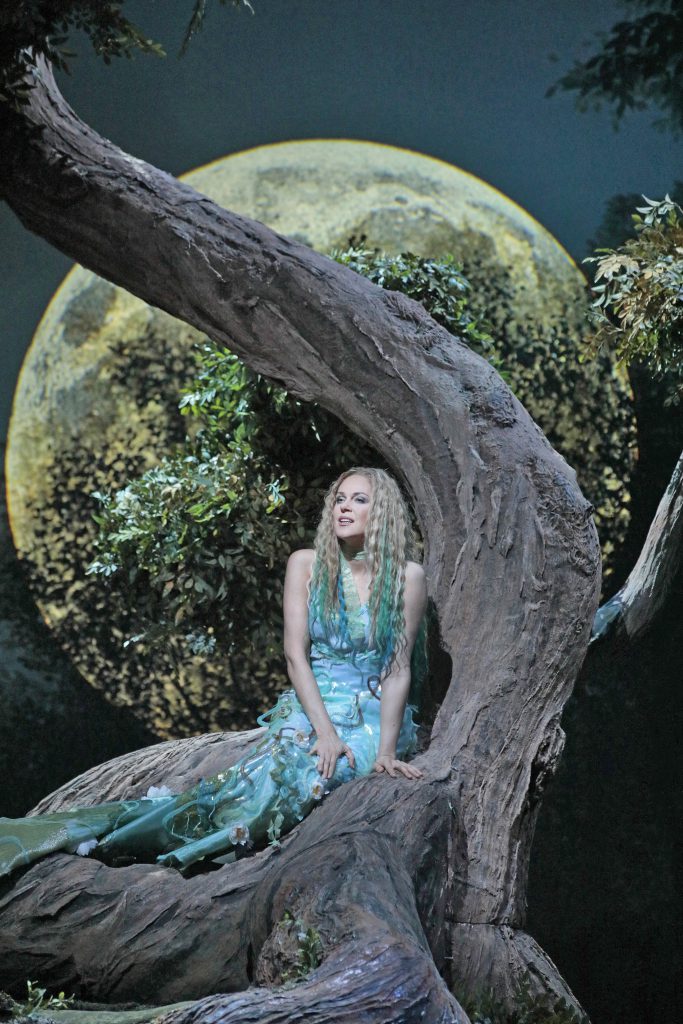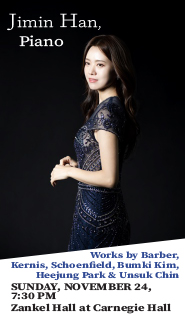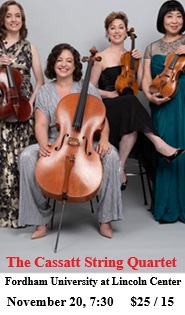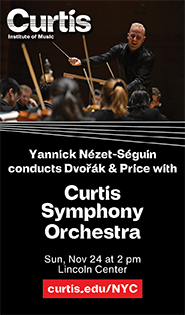Opolais ravishing in Met’s new “Rusalka” but Zimmerman’s swamp needs draining

Kristine Opolais stars in the title role of Dvořák’s “Rusalka” at the Metropolitan Opera. Photo: Ken Howard
The curious Metropolitan Opera career of Mary Zimmerman is still growing, it seems. Before this week she had three Met productions to her credit already, and all of them coldly received–one, of Bellini’s La Sonnambula, has entered legend as a meta-theatric misadventure, setting the pastoral love story in a Broadway rehearsal loft.
The third time not having proven the charm, Zimmerman has been offered a fourth strike in the form of an attempt at the Dvořák favorite Rusalka. Presenting the story of a water-sprite who gives up her voice to pursue her love for a mortal, only to find her dreamy notions dashed by the harsh reality of the human world, the lyric fairy-tale ought to provide fertile ground for a director with an expansive imagination. Yet whereas Sonnambula failed because of its strict adherence to an ill-planned conceit, this Rusalka, which had its season premiere on Thursday night, seems marred by a more general awkwardness, missing the essence of the work and getting bogged down in clumsy one-off ideas that come and go in seconds.
Zimmerman sets the piece in what the program synopsis dubs “fairy-tale times,” which in this case seems to be a stylized conception of eighteenth-century Europe. A beautifully painted drop curtain, presenting a darkly impressionistic forest lake scene, offered some hope that the director might attempt a serious exploration of the pain that runs through the opera. Then the curtain lifted to reveal a gaggle of wood-sprites frolicking campily about a set that was strikingly reminiscent of the Otto Schenk staging that this one is replacing, only with more sunshine, as a marvelously gnarled old tree looms over a magic lake.
That lake’s primary denizen, the water-gnome Vodnìk, is dressed up in what amounts to a Frog Prince Halloween costume, complete with orange padded fingers. Zimmerman sticks with her frog concept so far as to have Rusalka gently dab him with water from a plastic bucket during his appearance in the human world–he must be kept moist until he can be safely returned to his pond, you see. An attempt at sensual choreography for the ballet scene turned into a writhing jumble, and even a darker turn in Act III was hardly enough to redeem an altogether simplistic take on what could be a far more intriguing piece.
In short, this is hardly a fitting star vehicle for Kristine Opolais, though she put forth a strong effort in the title role. There seemed to be extra warmth in her tone for Thursday’s premiere, as she crafted a lovely, arching, soaring rendition of the Song to the Moon. There was a note of caution in her vocal characterization, often favoring security when a more bold approach might have suited. Dramatically, though, hers was a convincing portrait in spite of obstacles thrown at her by the staging—the costume designer, Mara Blumenfeld, put her in an endless dress for the first act, making the aesthetic choice to force her to clamber over her own train as she moved around. Opolais handled the burden with dignity, and once freed from her silken shackle, cast mute into the human world, she appeared at first wild and terrified. It was moving to watch her come to terms with her decision and the harshness of the world she chose.
Brandon Jovanovich gave an unflattering portrayal of the Prince, frighteningly rough in his treatment of his would-be mermaid bride. He showed signs of vocal strain when trying to power through at his top, but in his lower range sang with heroic vigor and full, dark tone. His work in the opera’s spellbinding final duet was outstanding, letting out a couple of spectacular soft high notes in mixed voice.
Eric Owens has been sounding somewhat bare of late, but hopefully his appearances as Vodnìk marks a return to form. He still sounded lean, at times struggling to project into the auditorium, but the voice groaned with pathos, laden as though with centuries of weariness in his Act II lament.
The real marvel of the cast was Jamie Barton, who was absolutely sensational as the sorceress Ježibaba. Her voice was a wonder in itself, a full, shady mezzo with harrowing power, and fierce fire in her chest. Of everyone in the cast, she had the most success in navigating the cartoonish aesthetic of the production, hamming it up just enough to embrace the comic elements of the role, but never forgetting its essential darkness. Barton brings tremendous presence to the stage, coupled here with a specific and deliciously wicked vocal characterization.
Katarina Dalayman made no apology for her conniving character, the insufferably imperious Foreign Princess who steals away Rusalka’s Prince, though she sounded tired from the start. Hyesang Park gave one of several strong debuts, singing with an easy warmth as the First Wood Sprite. Anthony Clark Evans, making his house bow as the Hunter, showed off a smooth, full baritone, even from offstage. And Daniela Mack, sporting a firm, direct mezzo-soprano with a touch of vinegar as the kitchen boy, made an excellent comic foil to Alan Opie’s flinty gamekeeper.
Sir Mark Elder led a workmanlike performance that was clean but unimaginative, beginning with a pale rendition of what should be a richly colored overture. Individual orchestral solos stood out throughout the performance, but the whole composition rarely rose to the level of its dramatic potential.
Rusalka runs through March 2 and the Metropolitan Opera. metopera.org



Posted Feb 03, 2017 at 7:38 pm by Dave
What a dull performance. Dvořák’s folk music tunes seemed totally out of place, unable to express the burden placed on them by this production. The uninspired prosaic conducting didn’t help. I had to listen to a recording of Beňačková to regain faith in the opera. Opolais looked ravishing and occasionally sounded good. I had the distinct feeling that the cast had memorized the sounds of the words but did not understand what they meant. Never felt like that before.
Posted Feb 12, 2017 at 11:10 am by John R.
Dear Mary,
As smart and sweet as you are, I hate to say it, but, please(!) quit while you’re behind.
You know well that the genre (opera) has you baffled and, at times, in stitches.
I respect your other work SO much…and your friendliness.
Sincerely.
Posted Feb 25, 2017 at 5:43 pm by Susy
I disagree. I found this production accurately conveyed the message that a ‘love’ based on losing a key aspect of oneself is doomed to failure- and I’ve seen it often enough as a psychotherapist who works with couples. The ballroom scene showed the viciousness with which society can treat the outsider – the dance really did advance the narrative. Rusalka can be produced as a shimmering enchantment – this one embodied light and shade.
Posted Feb 26, 2017 at 7:46 am by Nancy
I beg to differ with the 2 previous comments. I found the production thrillingly emotional, theatrical, and daring with a welcome 21st century aesthetic. This production should become a popular classic for a modern audience.
Posted Feb 26, 2017 at 7:57 am by Disappointed
In contrast to the current Met production,
this is a very good production of Rusalka (The National Theatre in Prague).
https://www.youtube.com/watch?v=kobTXKUBe3w
These days, esp. in the “west”, there is a trend to transport traditional settings into some modern context, often with truly bizarre variations. e.g., Rusalka, whose power lies precisely in the fairytale / fairyland-like setting, has been transformed into brothels, basements where she was imprisoned and raped by a deranged father etc.
The western productions sexualize this story in an absurd way, and, per above, often add bizarre and twisted elements.
As though the visually simple magic, along with the poignant story and exquisite music weren’t enough.
The Met productions have missed the boat entirely – from the two that I have seen. The sopranos they have cast as Rusalka lack the essential innocence in their appearance and behavior. Jezibaba and her helpers are made into a distracting side show, that doesn’t fit in with the rest of the story and, ironically, breaks the spell.
This current performance lacks the necessary subtlety and emotional tenderness that are such an essential part of the story. They have transformed it almost into a farce, with cliched, overdone scenes.
On top of this, the soprano cannot sing many of the arias. Her range doesn’t seem adequate.
And, last but not least, the conductor doesn’t seem to ‘get’ Dvorak’s score. It feels mechanical and lacks the rich affective dynamics that is his (Dvorak’s) trademark.
So – my suggestion: go to Prague to see how Rusalka ought to be done (or at least
watch Benackova’s rendition of Rusalka).
Posted Feb 27, 2017 at 4:38 pm by Richard
The opera was a heartfelt masterpiece by competent singers especially Kristine Opolais and magnificent conducting. A treasure to behold.
The only fly in the ointment was the mishandling of the final farewell kiss by Rusalka and the prince. The kiss is the most important moments of the opera and should never be impatient and rushed, rather it should be delicate and everlastingly sublime.
Take it from a life long member of the lonely hearts club I know of what I speak. Otherwise brilliantly poignant, brava!!!